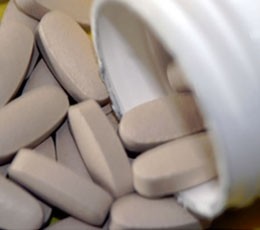Tackling autism with probiotics
children by tackling the neurotoxins and bacteria in the gut which
can cause the condition, according to new research in the UK.
Findings from a team led by Professor Glenn Gibson, Professor of Food Microbiology and head of the Food Microbiology Sciences Unit at the University of Reading, were released earlier this week.
"We have good evidence to show that children with autism have a gut flora which produces toxins, and that neurotoxins and bacteria in the gut are producing this metabolite," said Professor Gibson.
His research team, screening stool samples from 150 autistic children in the US, found a very high prevalence of the harmful bacteria, clostridia. A second research programme examining the gut flora of 60 British autistic children also revealed high levels of clostridia, which were not present in their non-autistic brothers and sisters.
"We are now screening several strains of probiotic bacteria to see which will intervene against these clostridia. Human trials will start later this year using the probiotic which performs best," said Professor Gibson.
Catherine Collins, chief dietitian at the department of nutrition and dietetics at St. George's Hospital London, added: "Probiotics are beginning to join mainstream medicine in hospitals where their use is extending into the care of critically ill patients. They are proving a valuable adjunct to treating patients with diarrhoea caused by antibiotics used to treat multiple infections."
The findings were released to coincide with the launch in the UK of a new prebiotic juice drink under the ProViva brand owned by Sweden's Skane Dairy. ProViva Shot! is an 80ml version of the ProViva juice drink already available in 1-litre cartons, and like its parent contains Lactobacillus plantarum 299v active bacteria, licensed from biotech firm Probi.
ProViva was developed in Sweden for use after surgery in patients whose digestive system was not working properly. The dairy-free fruit-based drink also provides the recommended daily amount of vitamin C, and was recently awarded a health claim by the Swedish Nutrition Foundation, the first for a European probiotic.





